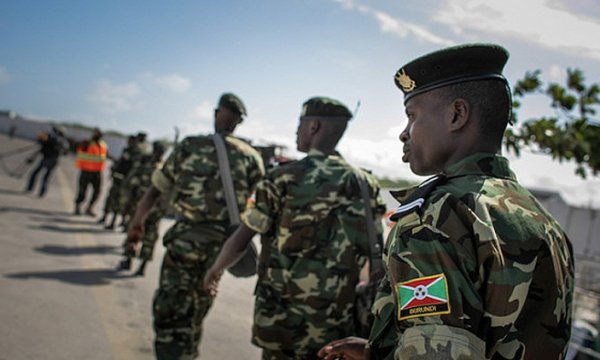Facebook Twitter (X) Instagram Somali Magazine - People's Magazine
The future of the African Union Support and Stabilisation Mission in Somalia (AUSSOM) faces significant uncertainty after Burundi announced its refusal to participate due to cuts in its troop allocation. The peacekeeping mission, designed to combat threats posed by al-Shabaab and Islamic State insurgents in Somalia, has faced complications linked to regional tensions and disagreements over personnel deployment.
Burundi, which has been a consistent contributor to previous peacekeeping missions in Somalia, reacted strongly to the reduction of its troop contribution from 3,000 to just over 1,000 personnel. This reduction, initiated under the new AUSSOM framework, has been perceived by Bujumbura as a diplomatic snub, especially given the economic benefits Burundi receives from participating in such missions.
The current AUSSOM deployment is planned to consist of 12,626 troops and police personnel, a significant reduction from the 20,000 under its predecessor, the African Transition Mission in Somalia (ATMIS). These cuts have triggered frustration among some contributing nations, with Burundi voicing the strongest opposition so far.
Compounding the operational challenges, Somalia’s strained relations with Ethiopia have further complicated the peacekeeping framework. Ethiopia has historically been a key contributor to Somali peacekeeping efforts but was sidelined after Mogadishu objected to Ethiopia’s controversial agreement with Somaliland for access to the Red Sea. This diplomatic rift led Somalia to sever its own military cooperation agreement with Egypt while expressing a preference for Egyptian forces in the AUSSOM deployment.
Egypt’s potential involvement, which includes the offer to deploy a significant number of troops, has also affected Burundi’s troop allocation. Cairo’s offer to send a large contingent into Somalia was welcomed by Mogadishu, further marginalizing Burundi’s role in the mission. The Somali government’s decision to favor Egyptian forces is widely seen as part of its broader strategy to build stronger alliances with North African states while balancing its diplomatic tensions with Ethiopia.
The participation of Ethiopian troops in AUSSOM remains uncertain, despite ongoing diplomatic efforts. Ethiopian Defense Minister Aisha Mohammed recently engaged with Somali officials to discuss the possibility of keeping most of Ethiopia’s 10,000 troops in Somalia under the new peacekeeping structure. However, Mogadishu has been reluctant to approve Ethiopia’s continued involvement, citing the unresolved maritime disputes over Somaliland and concerns about Ethiopian influence in Somali affairs.
AUSSOM was established to replace ATMIS and AMISOM, which had played a pivotal role in stabilizing Somalia since 2007. The new mission aims to continue counterterrorism operations against al-Shabaab while supporting Somalia’s long-term security infrastructure development. However, with reduced personnel and ongoing regional disputes, its ability to deliver effective peacekeeping outcomes remains in question.
Somalia continues to face serious security threats from al-Shabaab, an al-Qaeda-linked militant group responsible for numerous attacks targeting civilians, government officials, and international partners. The group’s persistence in launching large-scale attacks has made regional cooperation and effective peacekeeping essential for Somalia’s security and stability.
Burundi’s withdrawal threat adds another layer of complexity to the situation. As one of the most consistent troop contributors since AMISOM’s inception, Burundi’s refusal to participate could significantly impact the mission’s operational capacity. Peacekeeping analysts have warned that reduced personnel combined with ongoing diplomatic rifts could weaken AUSSOM’s effectiveness in stabilizing Somalia’s conflict zones.
The African Union and Somali officials face mounting pressure to resolve the personnel allocation issues while balancing the complex regional dynamics involving Ethiopia, Egypt, and Burundi. There is hope that ongoing diplomatic negotiations can prevent a complete collapse of the peacekeeping framework and ensure continued international cooperation against terrorism in Somalia.
As talks continue, the success of the AUSSOM mission hinges on reconciling troop contributions, ensuring fair resource allocation, and maintaining strong diplomatic relations among contributing nations. The coming weeks will be critical in determining whether the mission can proceed effectively or if further disruptions will compromise security efforts in Somalia.

